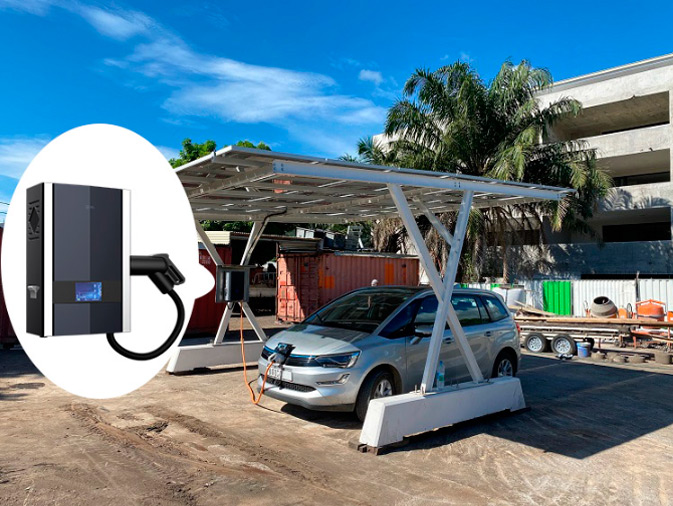The Japanese government will take measures to popularize high-power charging piles that can charge small pure electric vehicles (EVs) in a few minutes. In 2023, it plans to significantly relax restrictions related to the installation and operation of high-power devices, enabling them to take the same measures as low-power charging piles to improve ease of use. In Japan, the lack of charging infrastructure is a barrier to the introduction of pure electric vehicles. To improve the competitiveness of the automotive industry, it is necessary to advance the continuous improvement of the domestic environment in Japan.
On a global scale, Japan is a "developing country" in terms of pure electric vehicles. According to research firm MarkLines, Japan will account for only 2% of new vehicle sales in November 2022. China is 25 percent, Germany is 20 percent and South Korea is 9 percent, all of which are much higher than Japan's.
In Japan, tax incentives for pure electric vehicles are more generous than those for other environmentally friendly vehicles, and there are purchase subsidies. Despite this, consumers are still reluctant to buy pure electric vehicles, one of the major reasons being that there are too few charging facilities on the streets.
According to the International Energy Agency (IEA), Japan will have about 29,000 public pure electric vehicle charging piles in 2021. South Korea, which has a smaller land area than Japan, has 107,000. In terms of the IEA's definition of a fast-charging pile of 22 kW or more, Japan has 8,000, which is no match for South Korea (15,000) and China (470,000). It takes several hours or even more than 10 hours to fully charge a vehicle using a home charging port.
In order to promote the construction of infrastructure for fast charger for EV car, the Japanese government will relax the restrictions as early as 2023. The Japanese government believes that the point is that charging posts with a power of more than 200 kilowatts also ensures a certain level of safety and will be treated like charging posts of more than 50 kilowatts.
Japan currently has no special rules for charging posts under 20 kilowatts, more than 20 kilowatts will need to meet certain requirements, such as ensuring insulation to ensure safety. If it exceeds 50 kilowatts, it is further restricted by the distance from the building, etc.
Charging posts over 200 kW are "transformers", which are envisioned as devices that transform high voltage currents and need to comply with strict regulations. When installed indoors, the walls and ceilings need to be separated by fire-retardant materials, and some structures can only be operated by specific personnel such as operators.
The Japan Fire Agency, which is responsible for managing these regulations, will revise the relevant provincial order within 2023. After the revision, charging posts over 200 kW will also be classified as fast charging equipment, treating them the same as those with an output of 50 kW or more to 200 kW, making them easier to set up.
The Model 3 of Tesla, a representative pure electric car manufacturer, can travel 120 km in 5 minutes of charging using the fast charging pile with 250 kW output that the company is promoting to build. With high output charging equipment such as the mobile DC fast charger, a small car can be charged in a few minutes. It is also indispensable for the popularization of EV trucks and EV buses equipped with large batteries.
Under current regulations, setting up a 200 kW class charging pile requires tens of millions of yen in setup costs and several million yen in annual operating costs. e-Mobility Power, a subsidiary of Tokyo Electric Power Holdings, which is building fast-charging posts in Japan, welcomed the move, saying that "it will be easier to spread if setup and operating costs fall as restrictions are relaxed. The Japanese government aims to build 150,000 EV charging posts by 2030, 30,000 of which will be fast charging posts.
Charging infrastructure will also sway vehicle development. EVs now have batteries and motors that support 400V, and to cope with charging piles of 200 kW or more, it is thought that a change to a design that supports 800V is needed. The development of models that end charging in a short period of time will help improve the appeal of the product.
In addition to providing support through subsidies and tax breaks, countries are also trying to popularize EVs by strengthening environmental regulations. in Europe and some states in the United States, there is a movement to ban the sale of gasoline vehicles, including hybrid vehicles (HV), from 2030 to 2040.
EVs can be effective in curbing greenhouse gas emissions if they use renewable energy. In order to achieve net zero greenhouse gas emissions by 2050, it is necessary to expand renewable energy and decarbonize two-wheeled vehicles. If you are looking for any electric car charger manufacturers, you can explore Max Power now!
